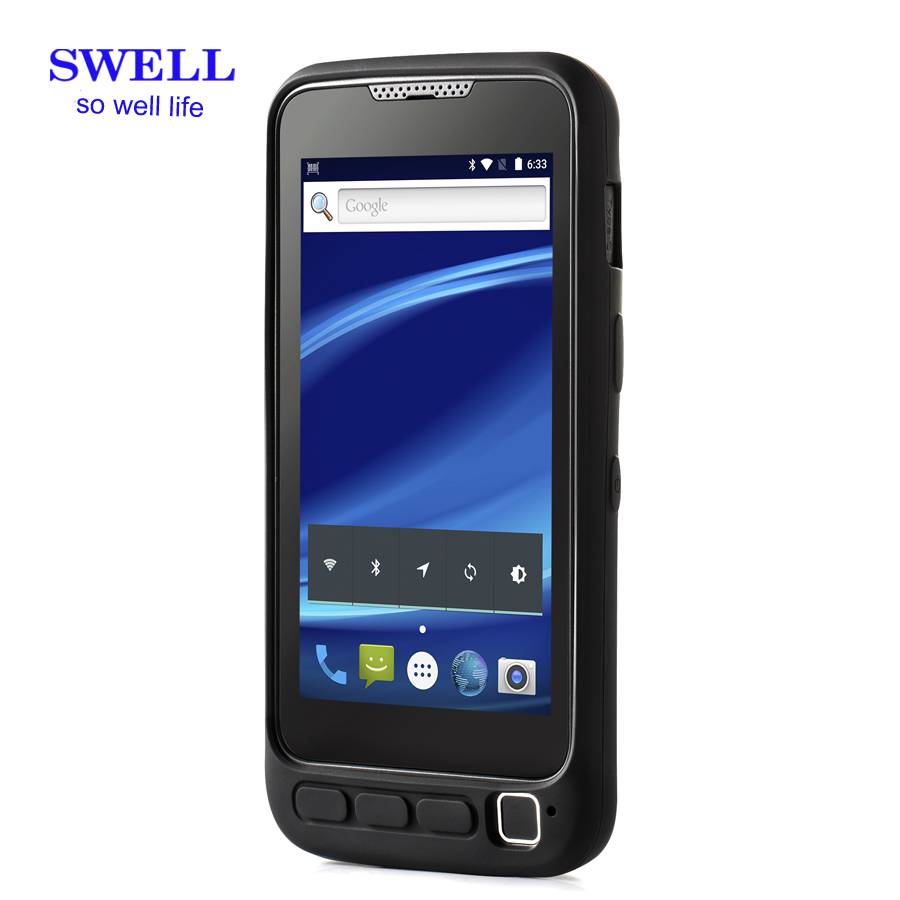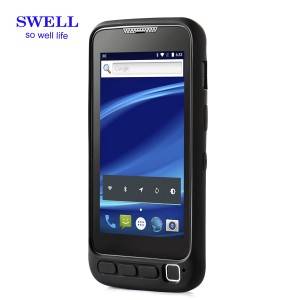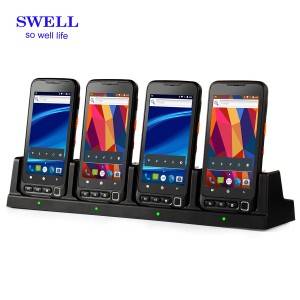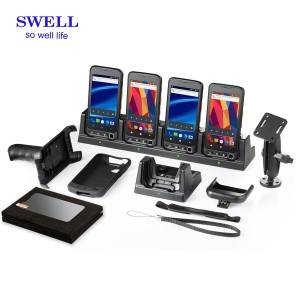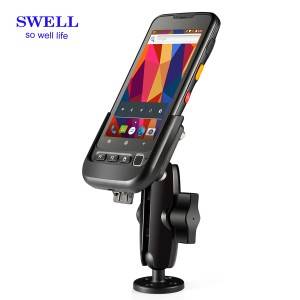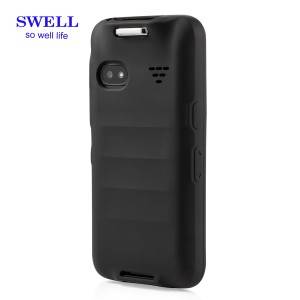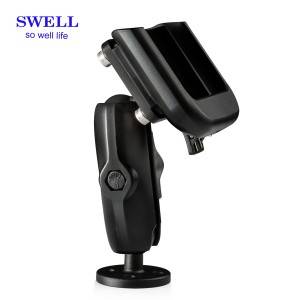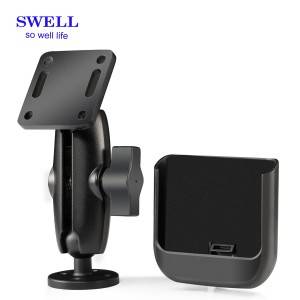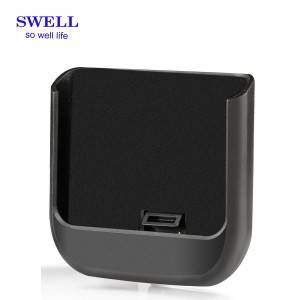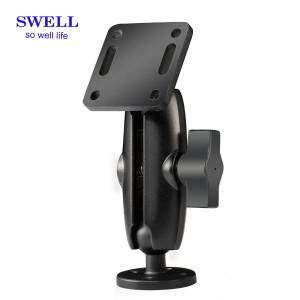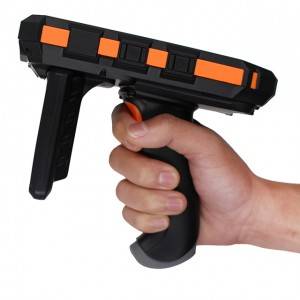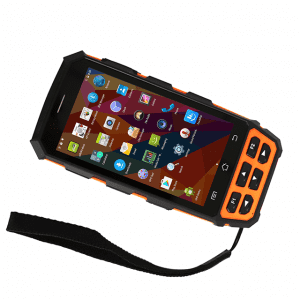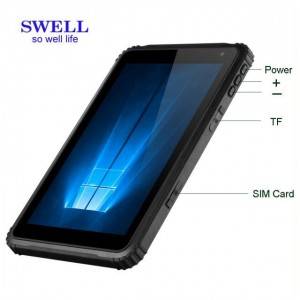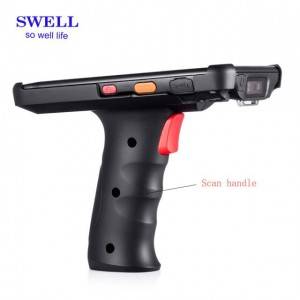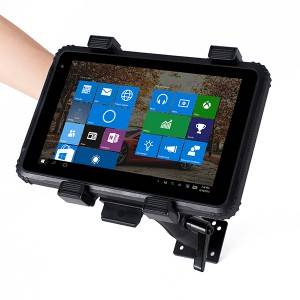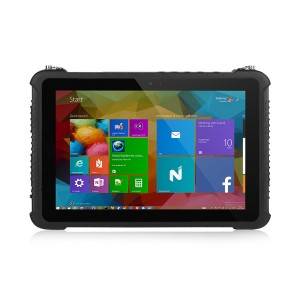radio frequency identification technology and application classification
Rfid technology can be divided into three categories according to the way the label is
powered,Passive RFID, Active RFID and Semi-Active RFID.
NFC is one of kind RFID
| Waterproof | IP67 | |
| Shockproof | MIL-STD-810G | |
| Operation | Android 7.0 | |
| Display | 8.0inch IPS 800×1280 Dragontrial/AGC | |
| Camera | Rear 8.0MP | |
| CPU | Octa-core MT6753 | |
| Storage | ROM+RAM:16GB+2GB | |
| GSM | B5/850;B8/900;B3/1800;B2/1900 | |
| 3G | WCDMA B1/2100;B2/1900;B5/850;B8/900; | |
| 4G LTE | FDD-LTE: B1/2100;B3/1800;B7/2600;B20/800; TDD-LTE: B38/B39/B40/B41 |
|
| Sim Card | Dual sim card,Dual standby | |
| WiFi | dual Wi-Fi 2.4/5GHz A/B/G/N/ | |
| Navigation | GPS, GLONASS | |
| 2D Scanner SE4710(MOTO) | UPC/EAN, Bookland EAN ,UCC Coupon Code,ISSN EAN,Code 128,GS1-128,ISBT 128,Code 39,Trioptic Code 39 ,Code 32,Code 93 ,Code 11,PDF417, MicroPDF417, Composite, RSS, TLC-39, Datamatrix, QR code, Micro QR code, Aztec, MaxiCode, Postal Codes, US PostNet, US Planet, UK Postal, Australian Postal, Japan Postal, Dutch Postal. etc. | |
| NFC NXP548 CHIP | Support 14443A Topza, 14443A MIFARE UL, JIS 6319-4 Sony Felica,14443A/B NXP DES Fire etc | |
| Charger | Optional docking station charger | |
| FM/BT4.0 | Support | |
| Sensor | 3D accelerator,E-compass,proximity sensor,Light sensor supported | |
| Music/video | Support | |
| Battery | 8000Mah | |
| USB port | Type-c | |
| T-flash | max support 32GB | |
| Products size | 219x141x 19.8mm/250g | |
| Accessories: | Adaptor, USB cable,wrist strap, key, user manual, giftbox | |
1.Passive RFID.
Among the three types of RFID products, passive RFID is the earliest, most mature and most widely used.In passive RFID, the electronic tag completes this exchange by receiving microwave signals from an RFID reader and by obtaining energy through an electromagnetic induction coil to power itself briefly.Because the power supply system is saved, the volume of passive RFID products can reach the order of centimeters or even smaller, and its structure is simple, low cost, low failure rate and long service life.However, as a cost, the effective identification distance of passive RFID is usually shorter, which is generally used for close contact identification. Passive RFID mainly works in the lower frequency band of 125KHz, 13.56mkhz, etc. Its typical applications include: bus card, second-generation id card, canteen card, etc
2 Active RFID
The emergence of active RFID has been in various fields, especially in the highway electronic toll system. Play an indispensable role. The active RFID is powered by an external power supply and sends signals to the RFID reader.It’s relatively large. But it also has a longer transmission distance and higher transmission speed. A typical source
RFID tags can be linked to RFID readers from a distance of 100 meters, with a reading rate of 1,700read/ SEC.Active RFID mainly works in higher frequency bands such as 900MHz, 2.45ghz, 5.8ghz, and can be read simultaneously. The function of multiple tags.The remoteness and high efficiency of active RFID make it in some need of high performance and large range Rfid applications are essential.
3.Semi-Active RFID
Passive RFID itself does not provide power, but the effective identification distance is too short. Active RFID identification distance is long enough, but need external power supply, large volume. Semi-active RFID is a compromise for this contradiction. Semi-active RFID is also called low frequency activation trigger technology. Under normal circumstances, semi-active RFID products are in a dormant state, which only supplies power to the part of the label that holds the data. Therefore, they consume less power and can be maintained for a long time. When the tag enters the identification range of the rfid reader, the reader first activates the tag accurately in a small range with a 125KHz low-frequency signal, and then carries out information transmission through 2.4ghz microwave. That is to say, the first use of low frequency signal precise location, then use high frequency signal fast transmission data. Its common application scenario is: in a large area covered by a high-frequency signal, multiple low-frequency readers are placed at different locations to activate semi-active RFID products.This not only completes the positioning, but also realizes the collection and transmission of information.
